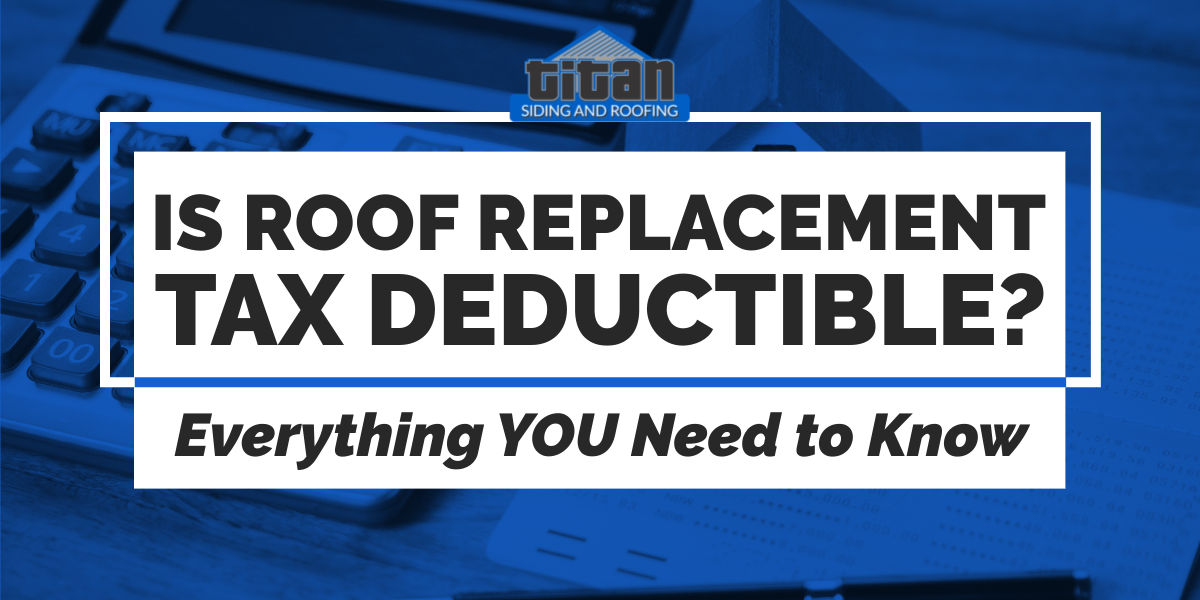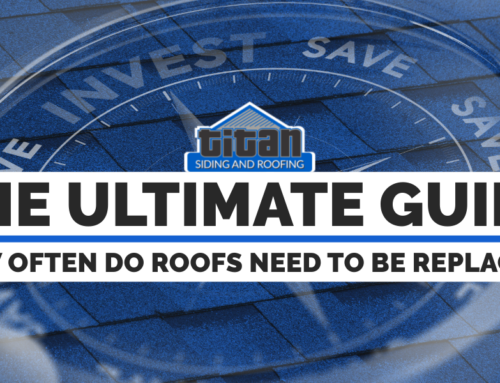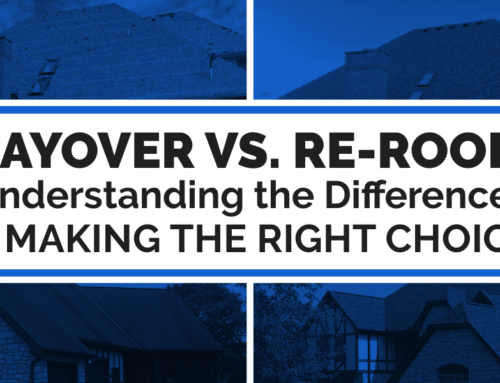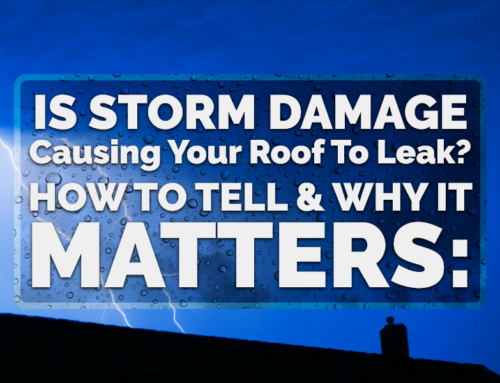Homeowners and commercial building managers frequently do not know whether a roof replacement constitutes a tax deduction. Tax provisions tend to be confusing and difficult to interpret. Many common misnomers exist relating to what home improvements, if any, offer tax deductions (or other tax incentives, for that matter).
When considering tax benefits, homeowners and businesses often ask if a roof replacement is tax deductible. If it is not tax-deductible, they may inquire whether a tax incentive program exists to receive a tax credit or rebate. Answering this question can pose a challenge. Working with a qualified tax professional offers solutions.
Is A Residential Roof Replacement Tax Deductible?
A home improvement, or capital improvement, is a permanent upgrade to substantially improve your home’s property value. A roof replacement may often qualify as a home improvement for tax purposes. In other instances, it might not.
Assuming the roof replacement meets the Internal Revenue Service (IRS) definition of a home improvement, projects of this type do not have a tax-deductible element. On the contrary, no tax incentives exist for the average roof replacement.
Is A Commercial Roof Replacement Tax Deductible?
For nonresidential properties, capital improvements (including roof replacements) often provide a tax-deductible element at the federal level. A commercial property owner may deduct up to  100% of the cost to replace or upgrade their roofing system from their business’s federal income tax filing in the calendar year when the roof replacement occurred.
100% of the cost to replace or upgrade their roofing system from their business’s federal income tax filing in the calendar year when the roof replacement occurred.
Under Section 179 of the IRS Tax Code, a business benefits from replacing its existing roofing system with a new roof. The new roof often incorporates state-of-the-art technological advancements, making it more energy-efficient and environmentally responsible. Leveraging this tax provision affords businesses substantial tax relief.
Although write-off limits apply, most new commercial roofing systems qualify. To learn more about federal, state, and local tax deductions (as well as other tax-related benefits) associated with a roof replacement, contact a professional tax advisor with the knowledge and experience to navigate through the IRS Tax Code and applicable state or local tax laws.
Beginning January 1, 2023, a federal tax deduction is available for building owners putting into service a qualified energy-efficient commercial building property (EECBP) or energy-efficient commercial building retrofit property (EEBRP). The exact deduction amount involves a specific calculation that a knowledgeable business tax professional can help determine.
Are There Any Residential Tax Incentives Available For Roofing System Upgrades?
Although a residential roof replacement does not provide a federal tax deduction (or credit), other home improvements corresponding to the roofing system may enable the homeowner to access federal tax credits. Under the Inflation Reduction Act of 2022, federal tax credits exist for energy efficiency upgrades to a home. This tax incentive program runs from January 1, 2023, through December 31, 2032.
A homeowner who wishes to take advantage of this tax incentive program may purchase and install Energy Star-certified insulation materials or skylights. As much as 30% of the product cost qualifies for a federal tax credit up to certain thresholds. A maximum tax credit of $1,200 for insulation materials is allowed annually. With respect to skylights, a maximum tax credit of $600 is accessible per year.
Home Envelope Improvements Provide Federal Tax Credits For Homeowners
Because both insulation materials and skylights are considered home envelope improvements under the Inflation Reduction Act of 2022, the total available tax credit for a given year is $1,200. For example, if a homeowner buys and installs a $5,000 skylight, the homeowner can claim up to 30% of the cost ($1,500) to the maximum of $600, whichever amount is less. The homeowner could

not claim the $900 difference.
If, in that same year, the homeowner also purchases $3,000 of qualifying insulation materials (including, but not limited to, products that reduce air leaks (caulk, spray foam, weather stripping, and house wrap) and products that insulate (rolls, blow-in fibers, expanding spray, rigid boards, etc.), they can claim up to 30% of the cost ($900) to the maximum of $1,200 as a credit, whichever amount is less.
Note: In this situation, the homeowner can claim only a total of $1,200 for all home envelope improvements in a given year. If the homeowner claims $600 for the skylight, they only have $600 remaining for that year under this provision. The homeowner would be permitted to claim $600 of the $900 of the insulation product purchase. The other $300 would not be eligible for a tax credit in this particular circumstance.
Working With A Knowledgeable, Experienced Roofing Contractor
If you own a home or business in Greater Cincinnati, trust the experts at Titan Siding and Roofing to provide unsurpassed roofing services. We have the expertise and tools to help with all types of residential and commercial roofing needs, including roof replacement, storm damage restoration, and gutter installation. Individuals, families, and businesses consistently rely on us to meet deadlines and exceed expectations.
Contact Titan Siding and Roofing today to schedule a free consultation or learn more about our complete line of roofing services.






